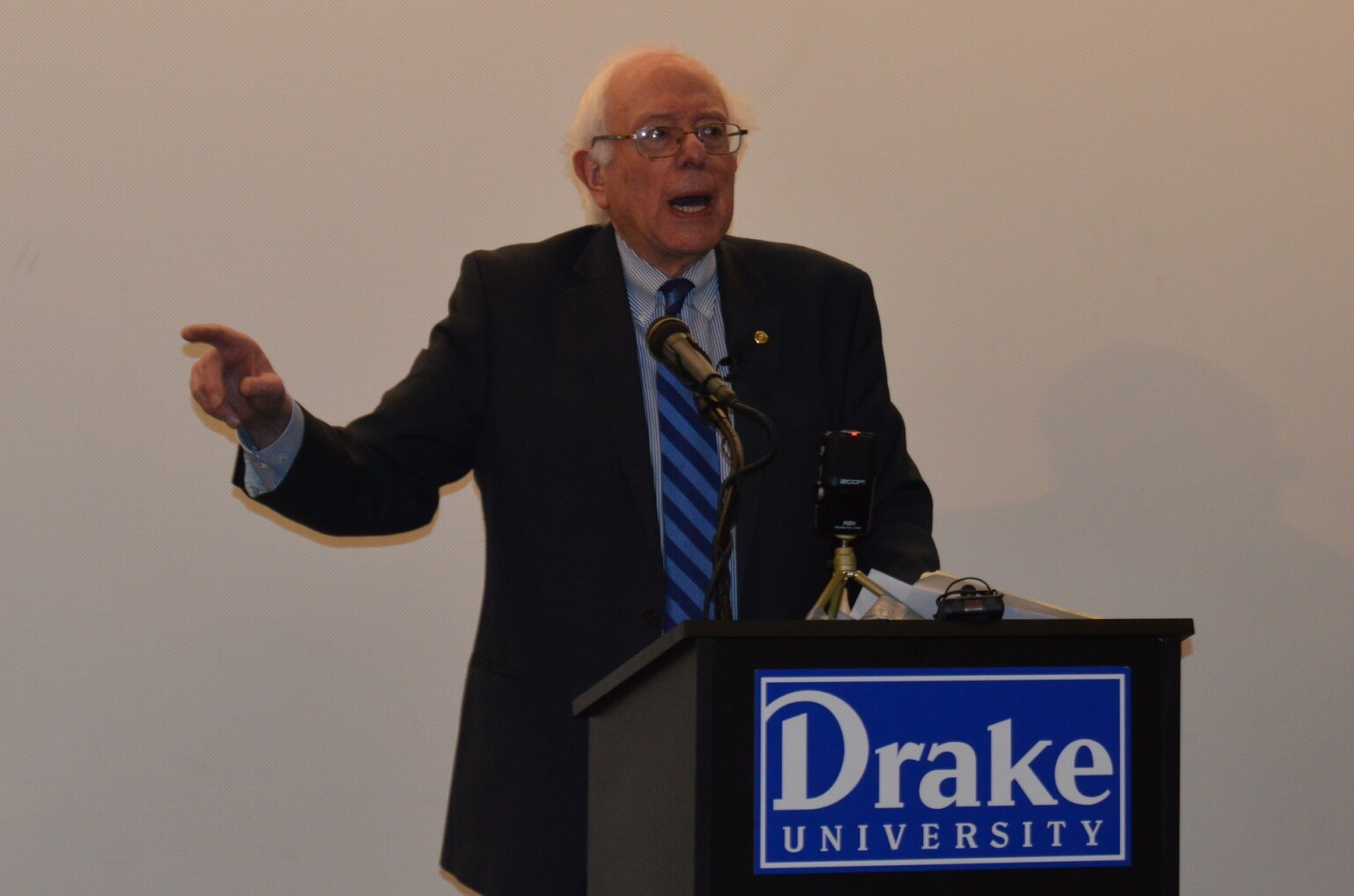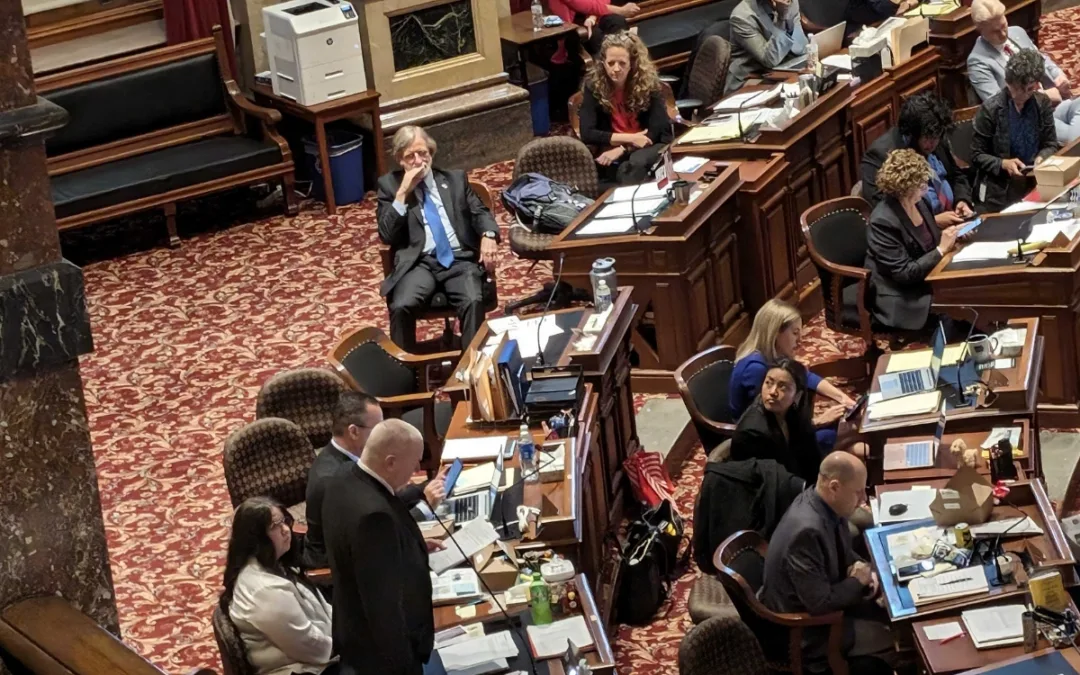
Vermont Senator Bernie Sanders, a self-identified socialist, undertook a three-day visit to Iowa late last week to test out a potential presidential bid. From Thursday to Saturday, he hit liberal gatherings, county party events and colleges in Iowa City, Des Moines, Cedar Rapids, Tipton and Ames. His message focused on wealth inequality, the danger of money in politics and several other issues key to the progressive left. However, if you listened closely, Sanders’ pitch was more progressive in presentation than actual policy proposals.
Sanders called for a “revolution” in American politics with mostly standard Democratic Party messaging. He criticized the Koch Brothers. He talked about the need for action on climate change. He said we should raise the minimum wage to $10.10 now, but that he would prefer to go further. He highlighted Scandinavian countries’ generous social policies, but stopped short of suggesting American changes to match their programs.
The only things he said that were even slightly outside Democratic leadership issues were single-payer health care and defense budget spending. Yet even with defense funds, he was only advocating cutting half of the $37 billion increase scheduled for this year in order to help pay for college tuition. “I would go further than this, but just for arguments’ sake,” Sanders remarked, never detailing what more he would do.
Still, the liberal activists and students in the crowd loved it, perhaps thanks to how he framed the overall debate. At his college visits, Sanders began his speech by saying, “In my view, the most important problem facing our country is that we don’t discuss the most important problems facing our country.” He urged more involvement in the political process, imploring the audience members that they spend at least half as much time talking about politics as they talk about football (this line worked better at Iowa than Drake). He then launched an attack on the Koch Brothers’ power, warning they would soon have more influence then both the Republican and Democratic parties combined.
Sanders listed off a number of statistics on economic growth, inflation and wages, warning the audience, “I’m going to bore you for a moment with some facts and information.” It wasn’t too boring, however, as he quickly punched through the key numbers of wealth inequality, pointing out how the top 1% in America own about 37% of the overall wealth, and that the bottom 60% own less than 2%. Sanders then touched briefly on student debt, climate change, military spending, minimum wage, the Trans-Pacific Partnership trade act, health care and Wall Street greed before moving on to student questions.
Sanders was well at ease interacting with the students. Before he spoke at each campus, several students gave quick 2-minute presentations on issues important to them. Throughout his speech, Sanders referred back to each presenter when he hit on similar topics. When taking questions from the audience, he remembered each person’s name and seemed to connect on some level with each student. He never spent more than two minutes on any answer, quickly getting to the point in simple and concise responses, which allowed him to get through many questioners. For someone who can get so heavy on details at times, Sanders gave an impressive performance that explained in-depth problems and solutions while still being relatable.
The students seemed to appreciate it. “It’s good to hear a new perspective on the issues instead of just your typical party platform,” said Jade Suganuma, a Drake student who spoke about climate change before Sanders’ speech. Brian Tunink, a freshman at Drake, agreed by saying, “He touched on a lot of points that aren’t usually talked about. He’s a good voice for the left opinion and a good progressive.” Suganuma could see herself supporting Sanders in the caucus, while Tunink was impressed, but still wanted to hear from other candidates first. Both mentioned the difference in clarity between Sanders’ presentation and Vice President Joe Biden’s speech at Drake last week, something Starting Line wrote about then.
“I thought it was awesome,” said Jim Freerksen, who wore a Run Warren Run shirt to the event. “I was very impressed by his enthusiasm and the way he came out and connected all the issues together in pretty much a cohesive, simplistic yet powerful way. He wasn’t a distant speaker.” Freerksen felt Sanders’ views aligned with his own on climate change, minimum wage, student debt and others, and said Sanders is his favorite after Warren.
The big question remains: will Sanders run? One student asked him specifically that at Drake, to which Sanders turned the question back on the crowd. “Do you think there is?” he questioned the crowd of whether there’s enough grass-roots support to run a campaign. “Is there support in America or are people too demoralized?” Nearly everyone who stood up to respond said that there was, though several acknowledged the difficulties.
A Sanders campaign would likely focus more on getting progressive issues and solutions into the national conversation. He’s getting better with that message, as Starting Line explained yesterday. But Sanders is no fool. He knows he has practically no chance of actually winning the Democratic nomination (and the way he was speaking, it sounded unlikely he’d do a third-party run). His decision will probably hinge on whether he thinks America needs a left-wing president to accomplish progressive policies, or whether the left simply needs a strong voice in the field to push those issues forward. He knows he can accomplish the latter.
by Pat Rynard
Posted 2/23/15
Politics

AEAs cutting workers in wake of Republican legislation
Iowa legislators said a new bill cutting money for agencies that help students with disabilities wouldn't affect services. But area education...

He said what? 10 things to know about RFK Jr.
The Kennedy family has long been considered “Democratic royalty.” But Robert F. Kennedy, Jr.—son of Robert F. Kennedy, who was assassinated while...
Local News

No more Kum & Go? New owner Maverik of Utah retiring famous brand
Will Kum & Go have come and gone by next year? One new report claims that's the plan by the store's new owners. The Iowa-based convenience store...

Here’s a recap of the biggest headlines Iowa celebs made In 2023
For these famous Iowans, 2023 was a year of controversy, career highlights, and full-circle moments. Here’s how 2023 went for the following Iowans:...







